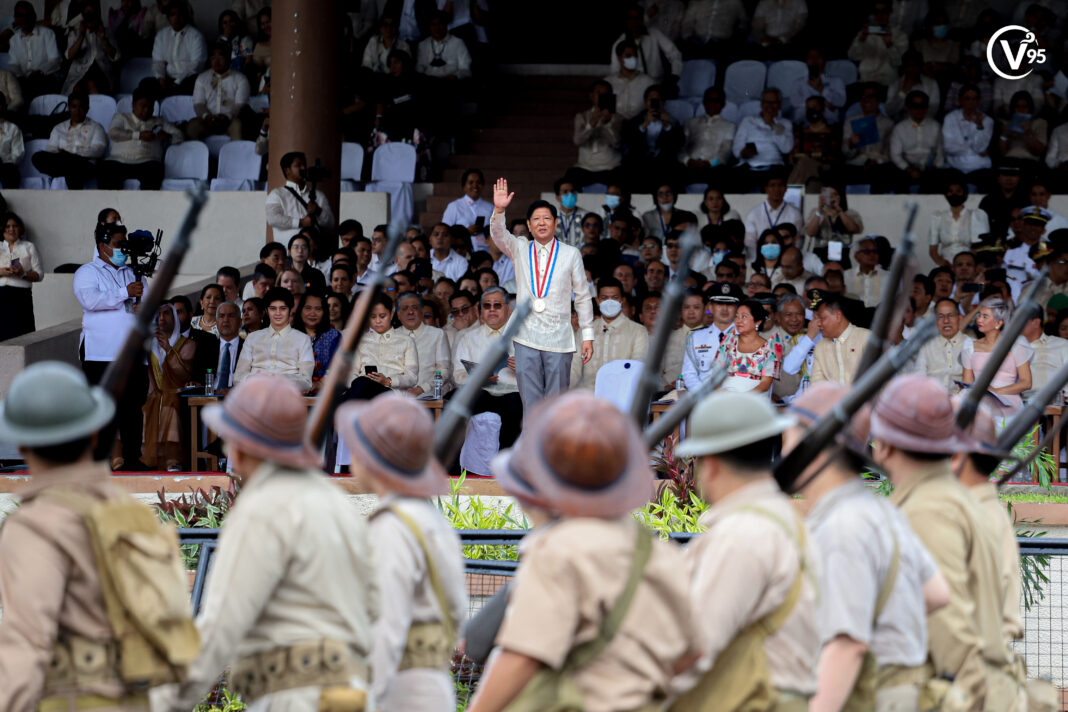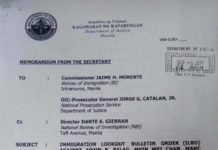PRESIDENT Ferdinand “Bongbong” Marcos Jr.’s leadership is in need of improvement, political analysts and voters said in interviews, as he prepares to report the country’s progress under his helm at the second State of the Nation Address on July 24.
Marcos achieved an unprecedented feat in the post-Edsa era by winning nearly 59 percent of the vote in the 2022 national elections, the highest for any presidential candidate.
But winning is only one part of the story. For UST Political Science instructor Renz Paolo Ramos, the second Marcos regime has so far failed to rein in various socioeconomic problems like rapid inflation, lack of job security and crime victimization, among others.
“Despite the weight of these pressing problems in our country today, we saw [his] leadership as rather lukewarm in a sense that he struggled to address these issues with a sense of urgency and sympathy toward us Filipinos,” Ramos told the Varsitarian.
Sean Perez, a store employee based in Bulacan who voted for Marcos, felt disappointed that the President has not yet delivered his campaign promises, which include bringing down the price of rice to just P20.
“Bilang isang ordinaryong mamamayan at manggagawa, wala pa akong nakikitang nagagawa niya dahil hindi ko naaabot ang mga tulong,” Perez told the Varsitarian. “Hindi ko nararamdaman ang pangulo kung mayroon man siyang ginagawa.”
“Hindi ito ang presidenteng inaasahan ko dahil nadala rin ako sa mga pangako niya no’ng kampanya, at ngayon, nganga.”
Still, Marcos’s personal popularity remains high, with a 78-percent approval rating, as per Pulse Asia.

Maintaining an image
Eric Daniel De Torres, another UST Political Science instructor who chaired the University of the East Political Science department, observed that the Marcos administration is not addressing sensitive and polarizing issues head-on, a departure from the time of former president Rodrigo Duterte, who peppered his critics with insults and incendiary remarks.
“A familiar tone of downplaying issues has been one of the strategies of Marcos Jr.’s presidency so that people believe that they are on top of the situation,” he told the Varsitarian.
Candidate Marcos avoided discussing extensively sensitive topics such as the drug war, which claimed more than 6,000 lives, according to the Philippine Drug Enforcement Agency. On May 5, however, he admitted in a Washington forum that “abuses by certain elements in the government” were present when Duterte oversaw the drug war.
Despite the criticism, Marcos is actively defending his predecessor by opposing the investigation of the International Criminal Court (ICC), as he considered it a “threat to the sovereignty” of the country.
Rescuing the economy
The public grew dissatisfied with the administration’s handling of inflation, which reached a record 14-year high of 8.7 percent in January, according to the Philippine Statistics Authority.
Pulse Asia reported in April that 52 percent of Filipinos disapproved of Marcos’s strategy to rein in inflation – viewed as one of the three most urgent issues – up from 42 percent in October 2022.
Inflation eventually cooled down to 5.4 percent this June.
But the centerpiece of Marcos’s economic strategy is the Maharlika Investment Fund (MIF), which is composed of revenues from state-owned banks and corporations to be invested in foreign assets to fund infrastructure projects.
Backlash has ensued since the President’s allies in the House of Representatives proposed the bill, first known as the Maharlika Sovereign Wealth Fund, in November 2022.
De Torres said the MIF was “too risky” for voters that reduced some of Marcos’s political capital.
“A lot of people are hesitant about it because it’s really a make-or-break for us,” De Torres said. “It’s too risky for a country like what other experts are saying. A country that is basically a no-choice.”
Proponents of the law believe that the state-led corporation will bolster investments and alleviate poverty. But critics warned that it is susceptible to corruption.
Despite widespread opposition, both chambers of Congress swiftly passed the bill with few hurdles.

Lavishness
The return of the Marcoses in Malacañang also meant the return of the extravagance that had come to define their dynasty.
“Marcos Jr. is more like his mother,” Maxine Monte, an incoming fourth-year Political Science student, told the Varsitarian. “In just a year, his family garnered confidence enjoying flamboyant parties and celebrating in extravagant festivities, leaving uncertainty on the administration’s performance.”
Just over a month into his term, he already held parties for his mother, former first lady Imelda Marcos, and wife, First Lady Liza Araneta-Marcos.
His frequent travels abroad also caused concerns. Since taking office, the President already flew to 13 countries, including two trips to the United States, where he met his counterpart, Joe Biden; one to the United Kingdom, where he attended the coronation of King Charles III; and one to China, where he told its leader Xi Jinping that the Philippines is pursuing an independent foreign policy amid the turmoil occurring at West Philippine Sea; among others.
“While these travels often yield economic and political benefits to the country, it is still unusual for the President to be seen frequently traveling abroad, as Filipinos would usually look for the President, especially in difficult and challenging times,” Ramos said.
Five more years
For Chemical Engineering freshman Juan Fernandez, Marcos’s first year in office serves as a guide on how he will serve out the remaining five years of his term.
“The first year has been marred with controversies and issues [that are] yet to be dealt with,” Fernandez told the Varsitarian. “While a disconcerting and disheartening assumption, I think this will still be the Philippines’ state in the next five years.”
Ramos urged the President to take advantage of his “supermajority” in Congress to pass relevant policies for the people, not politically motivated agendas.
“I suggest that Marcos make use of his huge political capital to push for reforms and policies that will address the pressing problems that Filipinos face every day,” the political science instructor said.
For ordinary voters like Perez, his sincere hope is for the administration to spend time actualizing the promises that Marcos uttered during the campaign so as not to remain promises.
“Sana hindi [niya] kami iwan dahil marami ang nakipaglaban [sa kaniya] noong kampanya, at sana ngayong nasa pwesto [na siya], huwag [niya] naman kaming biguin nang todo […] Sana ipaglaban [niya] rin kami dahil hirap na kami,” he said.

















